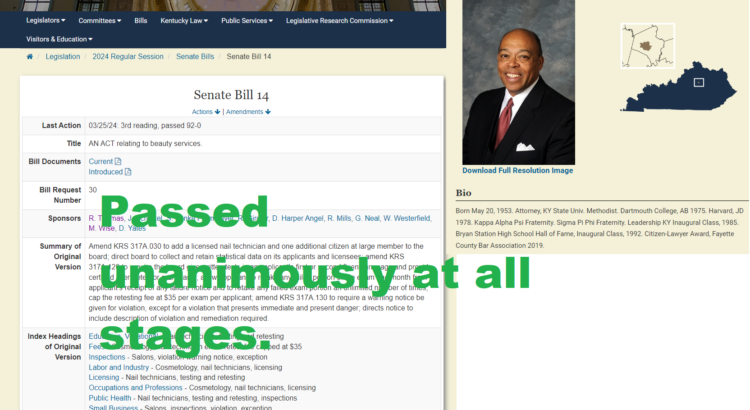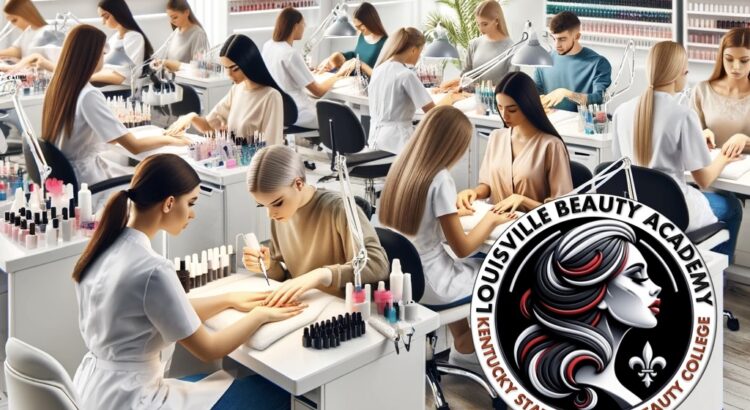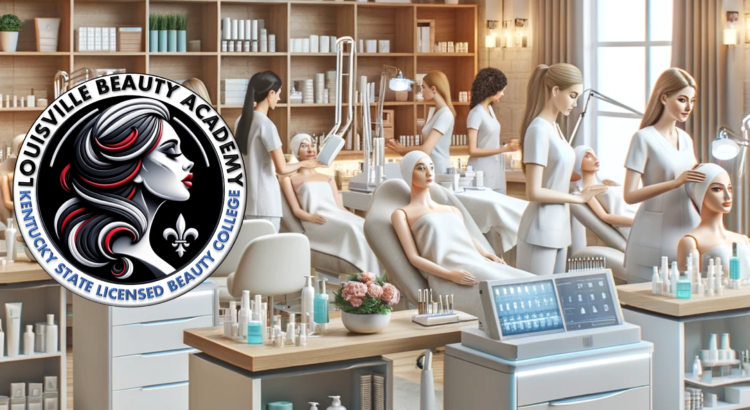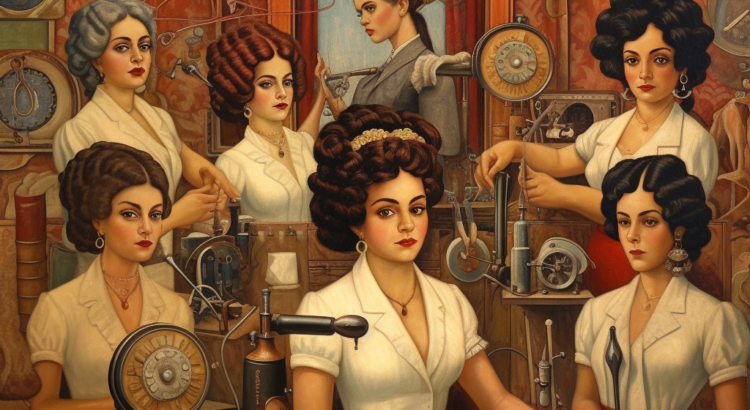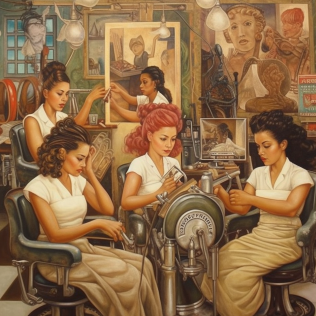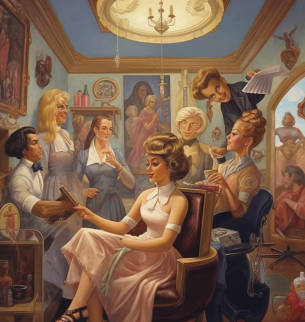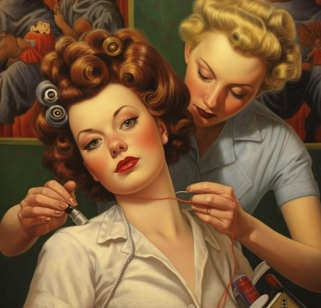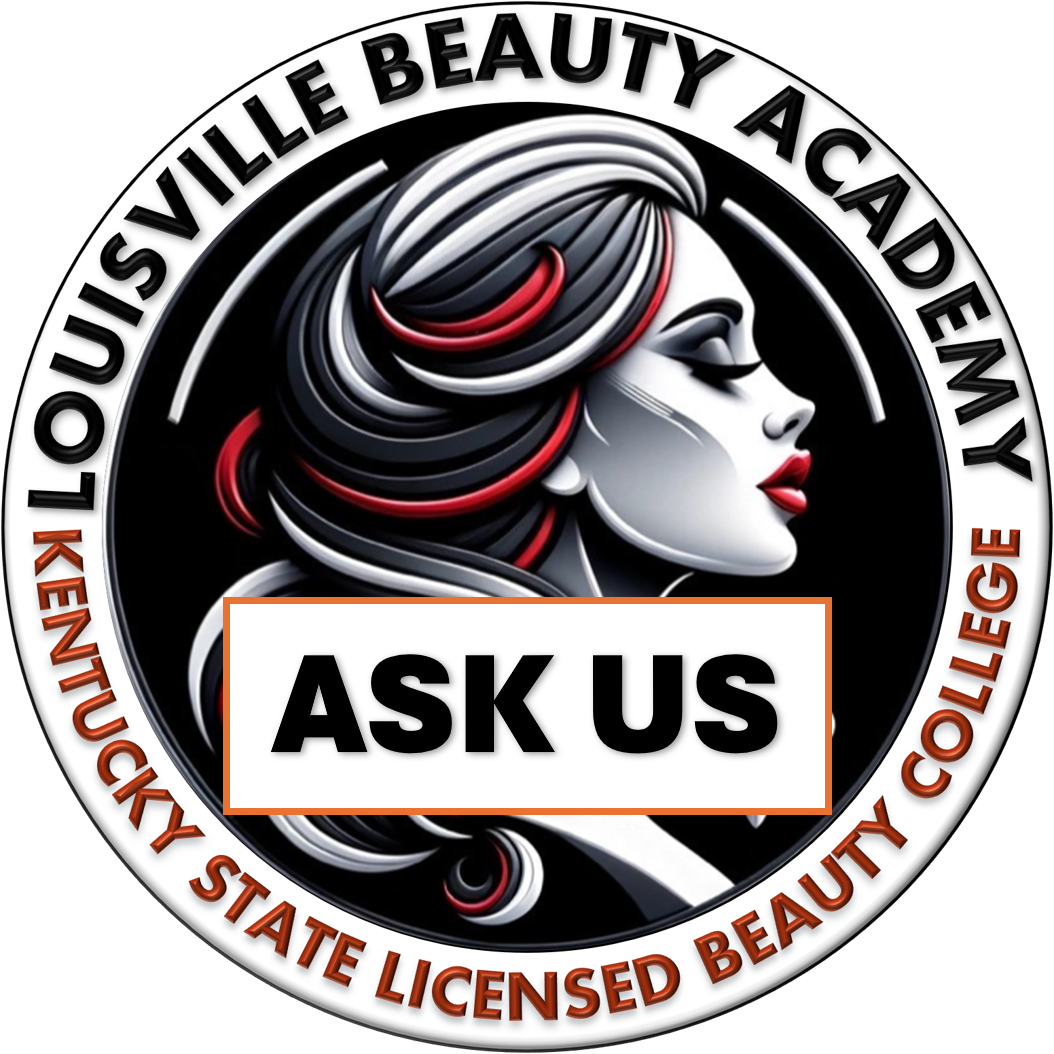On March 25, 2024, a significant piece of legislation, Senate Bill 14, was unanimously passed by the Kentucky General Assembly, heralding a new era for beauty professionals across the state. This act, meticulously shepherded through the legislative process by Senator Reginald Thomas, aims to refine and enhance the regulatory framework governing the beauty industry, with a particular focus on cosmetology, esthetic practices, and nail technology. It was signed into law in March 19th, 2024.
Effective Date: July 1, 2024
Kentucky typically enacts new laws like Senate Bill 14 to become effective 90 days after the adjournment of the legislative session, as dictated by Section 55 of the Kentucky Constitution. This standard is followed unless a specific effective date is mentioned or an emergency measure is invoked. Senate Bill 14 will therefore become effective on July 1, 2024.
This 90-day period allows for administrative preparation by state agencies, such as the Kentucky State Board of Cosmetology, to update regulations and procedures. It also provides time for industry adjustment, where professionals and businesses can prepare to comply with new rules, and for public information campaigns to educate both service providers and consumers about the changes. This structured timeline ensures a smooth transition into the new regulatory environment, minimizing disruption and enhancing the law’s effectiveness across the community.
Key Highlights of Senate Bill 14:
- Scope of Practice: The bill clearly delineates the boundaries of practice for cosmetology, esthetic practices, and nail technology, ensuring that these professions are solely focused on cosmetic purposes and not on treating physical or mental ailments.
- Licensing Requirements: It reaffirms that individuals must obtain the appropriate licenses to engage in cosmetology, esthetic practices, or nail technology for the public or for consideration, thereby upholding professional standards.
- Expanded Board Composition: The Kentucky Board of Cosmetology will now include seven members, with specific representation for licensed nail technicians and estheticians, ensuring a broader representation of the beauty industry.
- Emergency Powers and Enforcement: The board is empowered to take emergency actions to protect public health and safety and can refer violations to legal authorities for prosecution.
- Retesting for Nail Technician Applicants: Nail technician applicants who fail a written theory test or an oral practical demonstration are allowed to retake that portion after one month from the date of receiving notice of the failure.
- Use of Callus Graters: The bill explicitly permits the use of callus graters for callus removal by instructors, students, cosmetologists, and nail technicians, providing clarity on permissible practices.
Senate Bill 14 is a testament to the collaborative efforts of legislators, industry professionals, and stakeholders who have worked tirelessly to ensure that Kentucky’s beauty industry continues to thrive while maintaining high standards of professionalism and safety. This legislation not only strengthens the regulatory framework but also paves the way for a more inclusive and representative governance structure within the beauty industry.
REMOVED CLAUSE
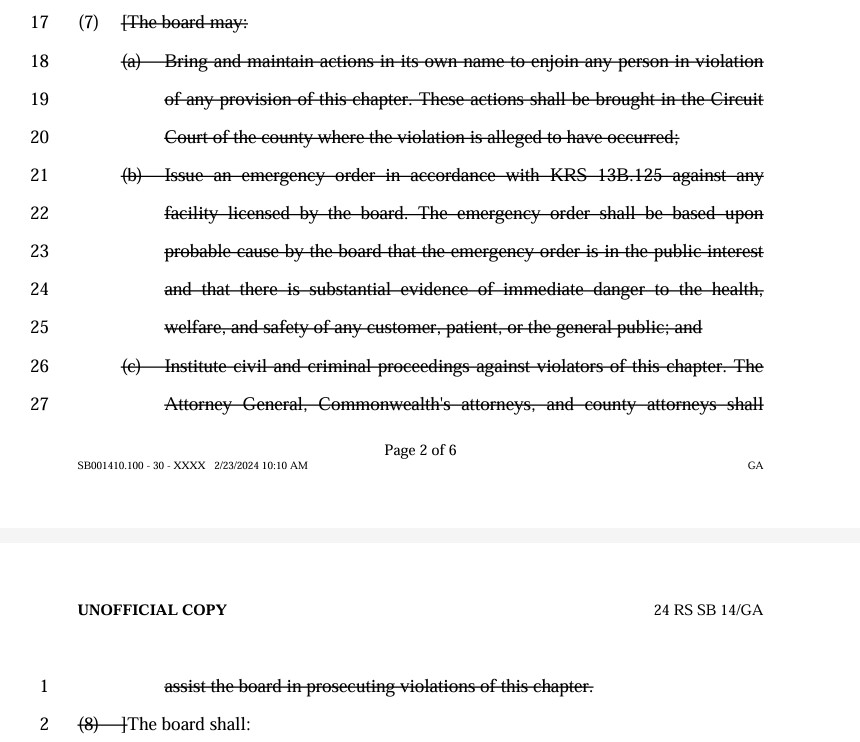
The removed section gave the Kentucky Board of Cosmetology strong powers to enforce rules, but it also had the potential for misuse. Here’s a simpler explanation:
- Legal Actions: The board could take people or places breaking the rules to court. However, this power could be misused to target certain businesses unfairly, like closing down nail salons on the spot during inspections without proper cause.
- Emergency Orders: The board could quickly act to stop dangerous situations. But this could be abused if, for example, a salon was shut down immediately based on unverified claims, causing harm to the business.
- Lawsuits and Criminal Charges: The board could sue or charge rule-breakers with crimes. However, there were concerns that this power was used harshly against certain businesses, like delaying their appeals for months with the intention of causing harm.
By removing this section, the board’s ability to enforce rules remains, but there’s less chance for these powers to be misused against businesses like nail salons.
ADDED CLAUSE
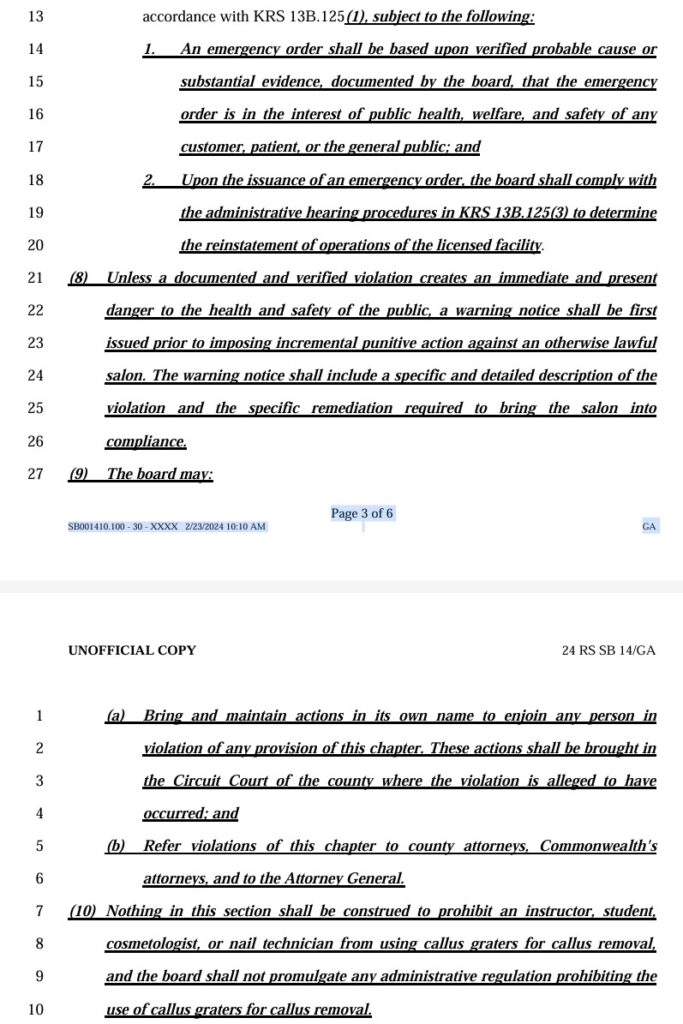
The added clause in the legislation aims to make things fairer and reduce the chances of the board misusing its power. Here’s how:
- Emergency Orders: Before the board can issue an emergency order to shut down a salon, they must have strong evidence or a very good reason to believe that there’s a real danger to public health, safety, or welfare. This means they can’t just close down a salon without a solid reason.
- Hearing Procedures: If the board does issue an emergency order, they have to follow certain rules to decide if the salon can reopen. This gives the salon a fair chance to make their case.
- Warning Notices: Before taking serious action against a salon that’s otherwise following the law, the board has to give a warning notice. This notice must clearly explain what the salon did wrong and what they need to do to fix it. This way, the salon has a chance to correct the issue before facing harsher penalties.
- Legal Actions: The board can still take legal action against someone breaking the rules, but they have to do it through the court system in the county where the problem happened. This ensures that the process is transparent and fair.
- Referring Violations: The board can refer violations to legal authorities like county attorneys or the Attorney General, but this doesn’t mean immediate punishment. It allows for a proper legal process to take place.
- Use of Callus Graters: The board can’t make rules that stop instructors, students, cosmetologists, or nail technicians from using callus graters for removing calluses. This gives professionals the freedom to use the tools they need for their work.
Overall, these changes aim to make sure that the board’s actions are based on real evidence and that beauty professionals have a fair chance to respond to any accusations or orders.
MISCONCEPTIONS VS REALITY ABOUT THIS SENATE BILL 14
- Misconception: The bill was only for Asians, specifically Vietnamese and Cambodian nail technicians and salon owners.
- Reality:
- The bill is for all Americans, promoting fairness in the beauty industry.
- It aims to include nail technicians and estheticians on the regulatory board for better representation.
- It allows all candidates to retake licensing exams within a specified time until they pass, ensuring equal opportunities.
- The bill highlights the significant contributions of the immigrant community to Kentucky’s economy and society.
- Louisville Beauty Academy has graduated over 1,000 students, the majority of whom are immigrants from all around the world. On any given day, there can be speakers of more than five different languages in a class.
- The bill supports workforce development, enabling more people to work safely and quickly in the beauty industry.
- It ensures fair treatment and protection for beauty professionals and promotes accountability for those in positions of power.
- The bill is about all Americans, emphasizing inclusivity and diversity in the beauty industry.
REFERENCES
https://apps.legislature.ky.gov/record/24rs/SB14.html
https://legislature.ky.gov/Legislators/Pages/Legislator-Profile.aspx?DistrictNumber=113
